MS-LS4-2
Apply scientific ideas to construct an explanation for the anatomical similarities and differences among modern organisms and between modern and fossil organisms to infer evolutionary relationships.
-
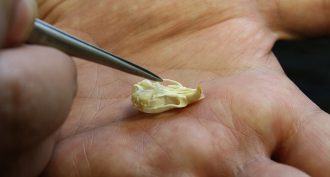 Animals
AnimalsHow the house mouse found its home
Once people started settling down 15,000 years ago, a mouse species followed them indoors. The animals didn’t need people to be farming and storing food.
-
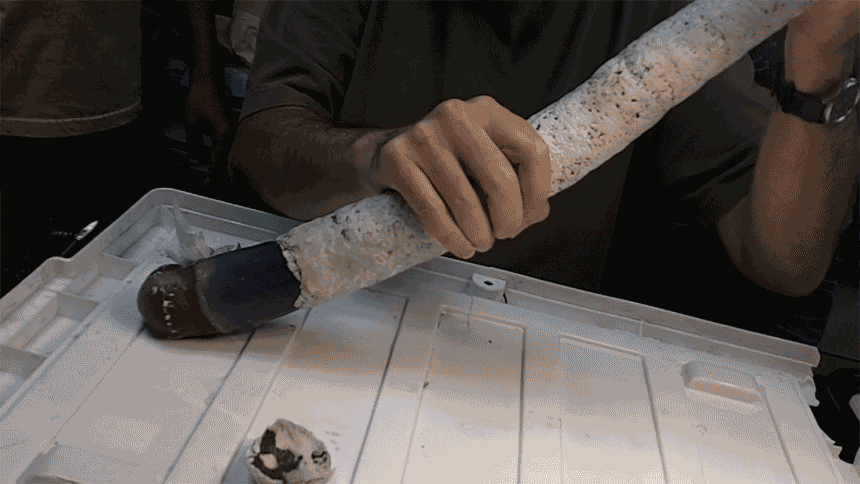 Life
LifeWeird mega-worm found to have odd diet
Giant shipworms have bacteria in their gills that produce food for them. This has made their digestive organs shrink from lack of use.
-
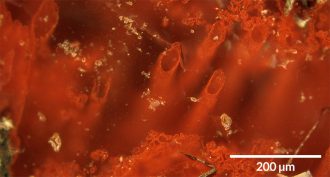 Fossils
FossilsFossils offer new candidate for earliest life
Rock unearthed in Canada appears to hold fossils from seafloor microbes that would have lived around 4 billion years ago, when Earth was very young.
By Meghan Rosen -
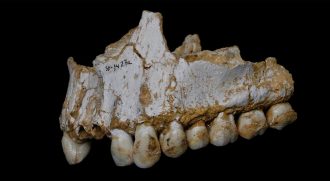 Science & Society
Science & SocietyFossils point to Neandertal diets — and medicine use
Whether Neandertals were largely meat-eaters or vegans depended on their environment, fossils now suggest. Their teeth also indicate they used natural medicines.
-
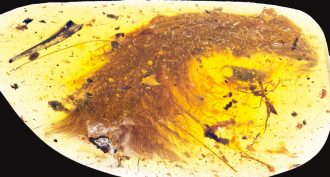 Fossils
FossilsDinosaur tail preserved in amber — feathers and all
Scientists have found the tail of a dinosaur trapped in amber. It includes both feathers and identifiable bits of bone.
By Meghan Rosen -
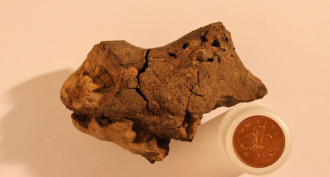 Fossils
FossilsDino brain found ‘pickled’ in boggy swamp
Scientists claim to have identified the first fossil brain tissue from a dinosaur.
By Meghan Rosen -
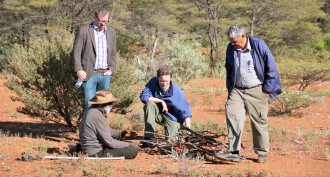 Climate
ClimateGlobe’s non-Africans all descend from a single move out of Africa
Look back far enough and everybody’s ancestors were African no more than 72,000 years ago. Climate scientists would up that date to perhaps 100,000 years ago.
-
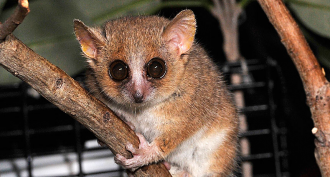 Life
LifeSurprising primate fossils found in an Indian coal mine
Bones of a 54.5-million-year-old primate suggest India might have been a hotbed of early primate evolution.
By Bruce Bower -
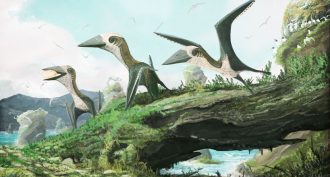 Fossils
FossilsMini pterosaur from the age of flying giants
Not all pterosaurs flying the Cretaceous skies had a wingspan as wide as a school bus is long. Some, new fossils show, were smaller than modern eagles.
By Meghan Rosen -
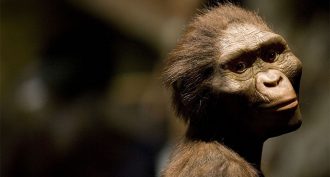 Archaeology
Archaeology‘Cousin’ Lucy may have fallen from a tree to her death 3.2 million years ago
A contested study suggests that Lucy, a famous fossil ancestor of humans, fell from a tree to her death.
By Bruce Bower -
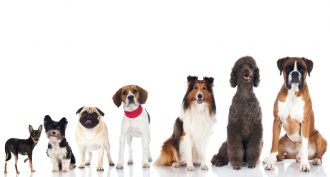 Animals
AnimalsThe turning of wolves into dogs may have occurred twice
The process of turning wolves into dogs, called domestication, may have occurred twice — in the East and the West — ancient DNA suggest.
-
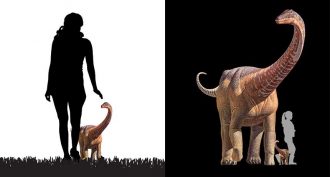 Fossils
FossilsBaby titanosaur was a mini version of its parents
Fossils show that baby titanosaurs looked like mom and dad. They may have been active and independent from a young age.
By Meghan Rosen